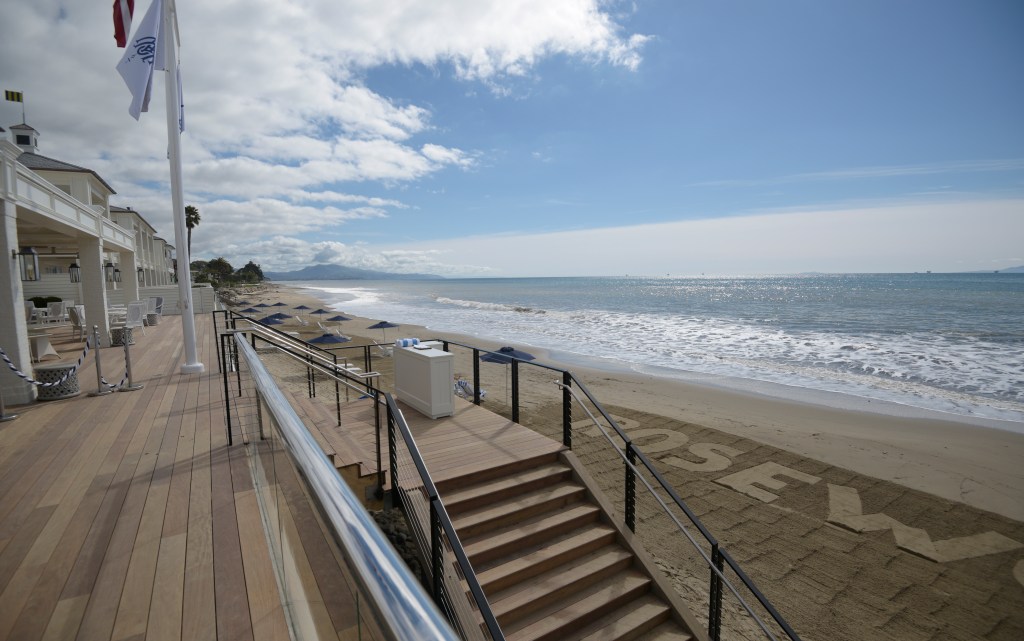I’m just old enough to remember when the former Miramar Hotel still had blue roofs and Jacques the lifeguard patrolled the place like a hawk. If he suspected you of freeloading on the resort’s private property, he’d swoop down on his bicycle and demand in his thick French accent: “Are you a guest of the hotel?” To kids who’d sneaked into the pool, Jacques was downright scary, a tan tyrant in a bright-red speedo. But to the rest of the community, he was a funny, charming fixture who liked to flirt and did handstands on the boardwalk.
There was nothing funny or charming about the three Rosewood Miramar Beach managers in dark suits who recently rousted a group of Montecito families from the beach in front of the hotel. In the fallout, the managers defended their heavy-handedness by comparing themselves to the late Frenchman. They said they were simply enforcing the rules. But Jacques never kicked people off the beach, and he cut a decidedly different figure of authority than the Men in Black who ruined the day of 6th graders celebrating their graduation.
Though both sides have simmered down, the episode exposed how horribly confusing and flawed the Miramar’s private access rules really are. For one thing, the beach’s “mean high tide” mark — the point calculated by the State Lands Commission in 1958 that would normally separate the beach’s private and public zones, and that is often invoked in debates over the resort’s property rights — isn’t the literal line in the sand that matters here.
The Miramar’s private beach area is actually determined by a 1975 settlement agreement between the original hotel and the County of Santa Barbara that simply carried over to the new resort when its permits were issued in 2015. The private area runs the width of the property and extends 60 feet from the edge of the boardwalk toward the ocean. (If the tide gets high enough, the settlement also states, the 60-foot limit line must move inland to accommodate a 20-foot strip of public access between the Miramar’s beach and the ocean.)
On Monday, I took a tape measure down to Montecito. I measured from the Miramar’s boardwalk to a post that marked the end point of where the hotel had set up its lounge chairs and umbrellas. The post was 85 feet from the boardwalk, 25 feet over the limit. So either the resort is intentionally breaking its own rules it’s so eager to enforce, or it’s understandably confused by the strange and outdated system with a moving target that was set up under a previous owner more than 40 years ago.
Either way, in order to avoid another dust-up with neighbors and to make clear once and for all what part of Miramar Beach is private and what is public, the hotel and the county need to hash out a new set of access guidelines. To its credit, the Miramar has already removed the black ropes and stanchions that had no place on the beach in the first place, and it updated its signs to explain the posts aren’t meant to keep the public out, but to keep hotel guests drinking alcohol penned in, per the requirements of its liquor license.
It may be easy to dismiss this debate as a first-world problem pitting Montecito millionaires against jet-setting billionaires, but in the context of the long-running battle to maintain access to California’s public beaches, it’s a potentially precedent-setting moment. We need to make sure the Miramar doesn’t keep pushing the line. We need to come up with a clear set of rules and stick to them. And we need to set the record straight when wannabe tough guys in Ray-Bans say they’re just like good ol’ Jacques.

